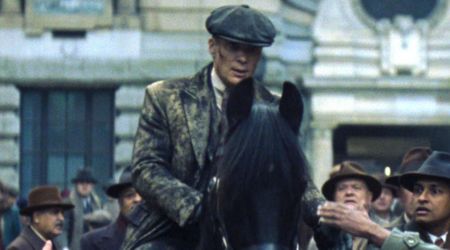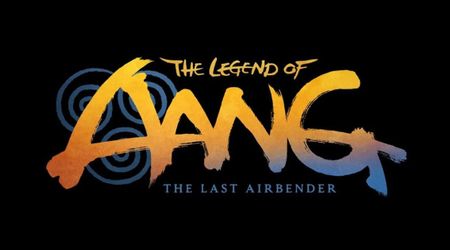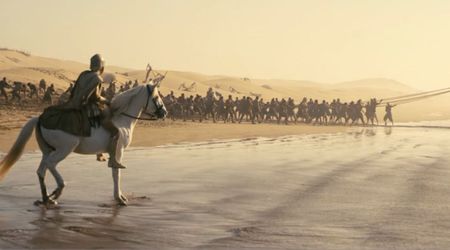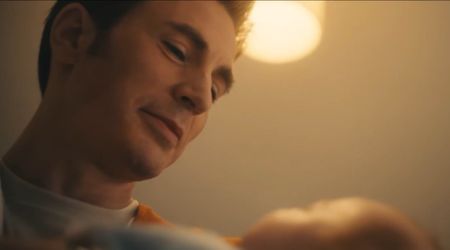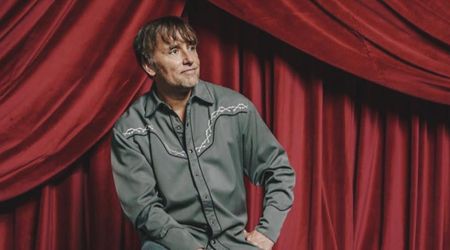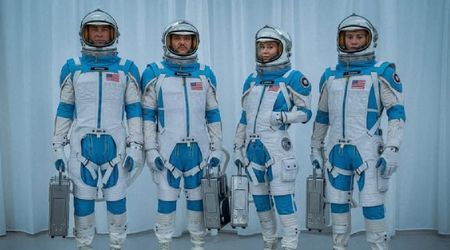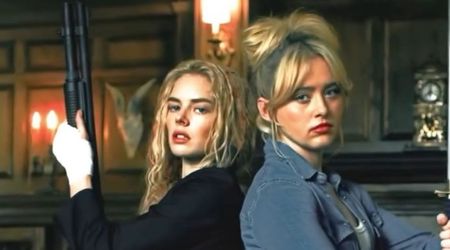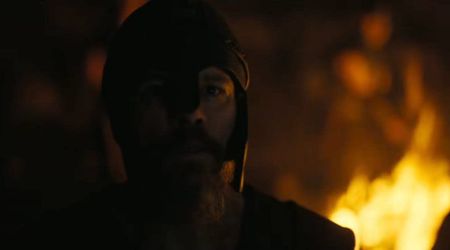'Adú' Review: Netflix film explores migration, border politics through contrasting arcs of white and black protagonists

It is said that everyone's grief and problems are valid because they are experienced by the self. But too often, this obsession with your own problems blinds you to injustice and large scale human tragedy in your own backyard. For a while now, migration from war-torn and poverty-stricken countries into Europe has been a point of contention in terms of nationalism, border politics, and humanitarian ideals. It becomes easy to miss the forest for the trees.
For the border police at Melilla, an autonomous city under Spain that shares a border with Morocco, anyone coming over the border fence is an "African", regardless of which country they have traveled from in the continent. Towards the end of the film, Miguel (Miquel Fernández), a civil guard who clubs a political refugee, Tatou (Emilio Buale), from Congo over the head for trying to climb over the fence, expresses this in some telling dialogue. While speaking to Mateo (Álvaro Cervantes), another guard who is feeling the twinge of guilt about his part in covering up the crime, he says the "Africans" need to "solve their own problems". It is a reductive line that refuses to take responsibility for the legacy of colonialism or slavery and how it engendered a climate of lawlessness and poverty in the continent.
Africa also evokes immediate associations to conservation - the only aspect of the region that most "white saviors" care about. All these racially-embedded tensions and histories play out in the course of the two-hour film through three separate stories that are interlinked in the way human lives are in this globalized world.
Gonzalo (Luis Tosar) is a well-meaning environmentalist working as an "external advisor" to an elephant forest reserve. But he only cares about the elephants, and he is dismissive of the villagers who live around the reserve park and the rangers themselves, instead of seeking their cooperation to corner the poachers.
It is not like he is unaware of the poverty or desperation or why the poachers themselves continue killing elephants for $25 a tusk. Despite the huge amount of money being poured into the park, there is not much concern about the people living in the area who should be the actual stakeholders in leading conservation efforts. He makes a big show about "paying their salaries", which in his mind entitles him to run things.
But at the same time, he is also shown to be a concerned parent to his wayward daughter, Sandra (Anna Castillo), who is into drugs, partying and sleeping around, while she comes to visit him in Cameroon from Spain.
The second story revolves around the civil guards who guard the border fence and the coast from "illegals". As desperate migrants try to climb over the barbed fence, Miguel, clubs Tatou on the head rather than let him cross over. It is a tense situation, with the desperation of hundreds of migrants colliding with a skinny patrol team of three, as back up fails to arrive.
An inquiry is set up to investigate the border skirmish. Miguel gets his team, which also includes Mateo, to testify that he had done nothing and the man had fallen to his death by accident. Balancing the perspective of the white protagonists of these stories is the story of Adú (Moustapha Oumarou) and his sister, Alika (Zayiddiya Dissou).

In Cameroon, they witness poachers killing an elephant on the reserve that Gonzalo is working for. Their bicycle is discovered by the poachers, who track them through it and kill their mother. The two kids manage to escape. The bicycle eventually finds its way to Gonzalo who "gifts" it to his daughter, who sees it as a "souvenir from Africa".
Adú and Alika make their way to their aunt in the city who secures passage for them with a trafficker so that they can join their father in Spain. The trafficker callously tells them to board the cargo hold of a waiting airplane, giving them some warm clothing to stave off the freezing cold. Alika in a bid to protect Adú, piles on the warm clothes on him, keeping the bare minimum for herself.
One of the most traumatic moments of the film comes when Alika's frozen dead body rolls off the plane as it descends as Adú screams in desperation. The plane lands in Senegal where Adú is taken in as an illegal. While being held, he makes friends with Massar (Adam Nourou), a boy escaping rape in his own country. They escape the police and journey to the Morroco border. Massar feeds himself and Adú by offering himself up to truck drivers for money.
It is no surprise that he ends up contracting AIDS. But he refuses humanitarian entry into Melilla to make sure Adú gets in as well. It is a meaty part and Nourou does justice to the role of a boy, little more than a child himself, taking care of his "adopted" brother Adú. He hits the right beats that gives the film its emotional heft, beyond Adú's innocent charms on camera.
The film ends on an ambiguous note. Sandra is almost caught for smuggling drugs but is saved thanks to her father's foresight and care. Massar, who has done nothing wrong, is detained on the border and separated from Adú after they secure passage into Melilla as child refugees. Both Sandra and Massar are of the same age and yet their destinies are very different. Adú blinks uncertainly into the sun as he looks at the refugees on the other side of the border which he has safely crossed over, losing both Alika and Massar in the process.
The film inspired by true stories of migrants is a revealing look into the human face of the European refugee crisis that often gets drowned out by far-right politics that see migrants as a threat brewing at the border. Most of the film is shot in Africa and that too mostly after sunset, which makes it difficult to see the action unfolding. The natural lighting used doesn't suffice, even with screen setting set to maximum brightness.
Another bugbear is the dubbed voices of the Spanish actors in English which sounds unnatural and stilted. Thankfully the story of the children on the run is not dubbed. The original French language is retained in these sequences with subtitles that serves the story far better. If you watched the second season of 'The Trade' on Showtime, you see many of the themes of immigration repeated but through a fictional cinematic lens of the hyperlink movie genre that made 'Babel' so poignant.
Adu is a timely and moving film. It premiered on June 30 on Netflix and is available to stream on the platform.

